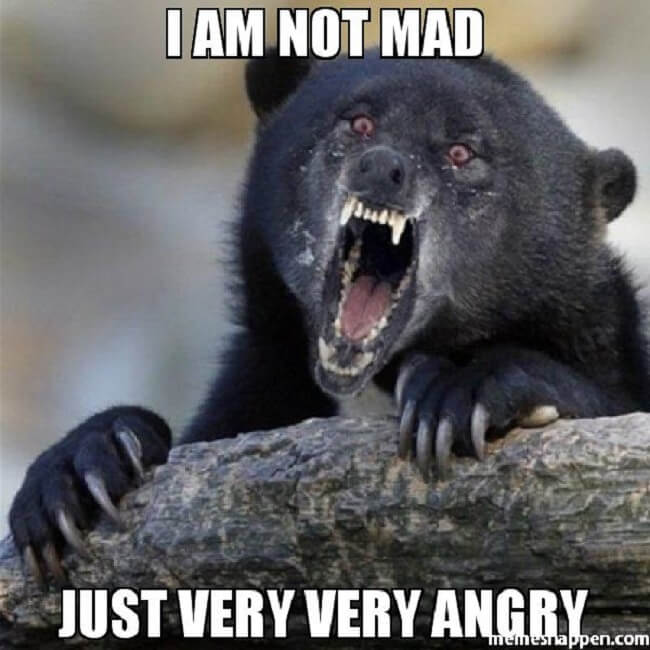Offensive jokes have long been a topic of debate in both social and professional contexts. These jokes often tread delicate ground, sparking discussions about humor, cultural sensitivity, and ethical boundaries. While some argue that humor should be free from restrictions, others believe that offensive jokes can perpetuate harmful stereotypes and contribute to a hostile environment. Understanding the nuances of offensive jokes is crucial in fostering respectful interactions in today's diverse world.
In this article, we will explore the concept of offensive jokes, their impact on individuals and society, and how to navigate humor responsibly. By delving into the psychology behind humor, cultural differences, and legal implications, we aim to provide a comprehensive guide to help you make informed decisions about what constitutes appropriate humor.
This discussion will also touch on the importance of empathy and respect in communication, offering practical tips to avoid unintentionally offending others while still enjoying the benefits of laughter. Let’s embark on this journey to understand offensive jokes and their place in modern society.
Read also:Salt Under The Tongue Trick A Comprehensive Guide To Its Benefits Science And Applications
What Are Offensive Jokes?
Offensive jokes refer to humor that targets specific groups, individuals, or sensitive topics, often causing discomfort, anger, or hurt feelings. These jokes may rely on stereotypes, prejudices, or derogatory language, making them harmful rather than harmless. The line between playful banter and offensive humor can sometimes blur, but the key lies in the intent and impact of the joke.
Some common examples of offensive jokes include those based on race, gender, religion, sexual orientation, disability, or socioeconomic status. While humor is subjective, certain types of jokes consistently elicit negative reactions due to their potential to reinforce discrimination or marginalization.
Why Are Offensive Jokes Problematic?
Offensive jokes can have far-reaching consequences, affecting both the individuals targeted and the broader social fabric. Below are some reasons why these jokes are problematic:
- Reinforcing Stereotypes: Jokes that rely on stereotypes can perpetuate harmful beliefs and attitudes, making it harder to achieve equality and inclusion.
- Hurting Individuals: People who are the subject of offensive jokes may experience emotional distress, low self-esteem, or feelings of exclusion.
- Creating Hostile Environments: In workplaces or social settings, offensive humor can lead to tension, conflict, and a lack of trust among participants.
- Undermining Progress: By normalizing derogatory language or behavior, offensive jokes can hinder efforts to promote diversity, equity, and inclusion.
Psychology Behind Humor and Offense
Understanding why people find certain jokes offensive requires a deeper look into the psychology of humor. Humor serves various functions, including relieving stress, fostering social bonds, and challenging societal norms. However, not all forms of humor are universally accepted. The perception of offensiveness depends on factors such as cultural background, personal experiences, and the context in which the joke is delivered.
Research suggests that humor can act as a double-edged sword. While it can bring people together, it can also create divisions when used irresponsibly. Recognizing the psychological mechanisms behind humor helps us appreciate the importance of being mindful in our comedic choices.
Factors Influencing Perception of Offensive Jokes
Several factors contribute to how individuals perceive offensive jokes. These include:
Read also:Andrew Santino Wife A Comprehensive Look Into The Life And Relationship
- Cultural Differences: Humor varies across cultures, with some societies valuing directness while others prioritize politeness.
- Personal Experiences: People who have faced discrimination or prejudice may be more sensitive to jokes that touch on similar themes.
- Contextual Factors: The setting, relationship between parties, and intent behind the joke all play a role in determining whether it is perceived as offensive.
Legal Implications of Offensive Jokes
In many countries, offensive jokes can have legal consequences, especially in professional environments. Laws protecting against harassment, discrimination, and hate speech aim to ensure that everyone feels safe and respected. Employers are increasingly implementing policies to address inappropriate humor and promote a positive workplace culture.
While freedom of speech is a fundamental right, it is not absolute. Courts have ruled that speech intended to incite violence, discriminate, or create a hostile environment can be restricted. Understanding these legal boundaries is essential for avoiding potential liabilities.
Workplace Policies on Offensive Humor
Companies often establish clear guidelines regarding acceptable behavior, including humor. These policies typically emphasize respect, inclusivity, and professionalism. Violating these rules can result in disciplinary action, including warnings, suspension, or termination. Employees are encouraged to report incidents of offensive jokes to maintain a supportive and equitable workplace.
Impact of Offensive Jokes on Society
Offensive jokes can shape societal attitudes and norms, either positively or negatively. When used irresponsibly, they contribute to division, intolerance, and inequality. On the other hand, humor that challenges harmful stereotypes and promotes understanding can foster progress and unity.
Media plays a significant role in influencing public perception of offensive jokes. Comedians, influencers, and content creators have a responsibility to consider the impact of their words and actions on audiences. By promoting responsible humor, they can help create a more inclusive and respectful society.
Case Studies: The Effects of Offensive Jokes
Several high-profile cases highlight the consequences of offensive jokes. For instance, comedians who make light of serious issues such as sexual assault or racial injustice often face backlash from both the public and their peers. These incidents underscore the importance of sensitivity and accountability in humor.
How to Recognize Offensive Jokes
Identifying offensive jokes can be challenging, especially when cultural or linguistic barriers exist. However, some red flags can help you determine whether a joke might be inappropriate. These include:
- Targeting specific groups or individuals based on protected characteristics.
- Using derogatory language or slurs.
- Relying on stereotypes or outdated beliefs.
- Causing discomfort or distress to those present.
By paying attention to these indicators, you can avoid unintentionally offending others and contribute to a more respectful environment.
Questions to Ask Before Telling a Joke
Before sharing a joke, consider the following questions:
- Could this joke hurt someone's feelings or perpetuate harmful stereotypes?
- Is this joke appropriate for the current setting and audience?
- Am I using humor to connect with others or to belittle them?
Alternatives to Offensive Jokes
Humor does not have to rely on offending others to be effective. There are numerous ways to generate laughter without crossing boundaries. Clean humor, self-deprecating jokes, and observational comedy are just a few examples of alternative approaches. By focusing on shared experiences and universal themes, you can create a more inclusive and enjoyable atmosphere.
Incorporating storytelling techniques or wit into your jokes can also enhance their appeal. The key is to find a balance between being entertaining and respectful.
Examples of Inclusive Humor
Here are some examples of inclusive humor that avoid offending others:
- Using personal anecdotes or experiences to create relatable jokes.
- Making light of everyday situations, such as commuting or workplace challenges.
- Employing clever wordplay or puns to add humor to conversations.
How to Handle Offensive Jokes
Encountering offensive jokes can be uncomfortable, but there are constructive ways to address them. Depending on the situation, you may choose to confront the offender, redirect the conversation, or simply walk away. Assertive communication skills are vital in handling these scenarios effectively.
When addressing offensive jokes, focus on the behavior rather than the person. Use "I" statements to express how the joke made you feel and encourage open dialogue. This approach promotes understanding and fosters a culture of respect.
Strategies for Dealing with Offensive Jokes
Below are some strategies for handling offensive jokes:
- Politely explain why the joke is offensive and how it affects others.
- Suggest alternative forms of humor that do not rely on harmful stereotypes.
- Report persistent offenders to appropriate authorities, such as HR departments or moderators.
The Role of Empathy in Humor
Empathy is a critical component of responsible humor. By putting yourself in someone else's shoes, you can better understand how certain jokes might impact them. Building empathy requires active listening, open-mindedness, and a willingness to learn from others.
Incorporating empathy into your comedic style not only prevents offensive jokes but also enhances your ability to connect with diverse audiences. When people feel seen and respected, they are more likely to engage positively with your humor.
Practicing Empathy in Everyday Interactions
To practice empathy in your interactions, consider the following tips:
- Listen attentively to others and validate their feelings.
- Ask questions to clarify misunderstandings and gain insights into different perspectives.
- Be open to feedback and willing to adjust your behavior accordingly.
Conclusion
Offensive jokes remain a contentious issue in today's society, requiring careful consideration and responsible action. By understanding their impact, recognizing warning signs, and embracing inclusive humor, we can foster environments where laughter coexists with respect. Remember, humor is a powerful tool that can either unite or divide us—it's up to us to use it wisely.
We invite you to share your thoughts and experiences in the comments below. Your feedback helps us create content that resonates with our readers and promotes meaningful discussions. Don't forget to explore other articles on our site for more insights into communication, diversity, and personal growth.
Table of Contents
- What Are Offensive Jokes?
- Psychology Behind Humor and Offense
- Legal Implications of Offensive Jokes
- Impact of Offensive Jokes on Society
- How to Recognize Offensive Jokes
- Alternatives to Offensive Jokes
- How to Handle Offensive Jokes
- The Role of Empathy in Humor
- Conclusion



